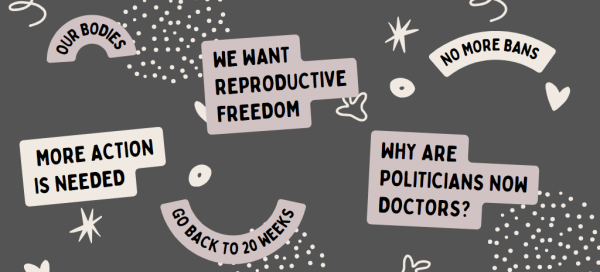In the wake of the reversal of Roe v. Wade, North Carolina has swiftly moved to dismantle women’s reproductive rights. The recent enactment of the Care for Women, Children and Families Act (Senate Bill 20) by the North Carolina Senate marks a restriction on abortion access. The bill, approved within a mere 48 hours of introduction, sharply decreases the timeframe for legal abortions from 20 weeks to 12.
Under this act, abortions are only permitted up to 20 weeks in cases of sexual assault and up to 24 weeks if a woman’s life is in danger. Furthermore, the legislation mandates that sexual assault survivors seeking an abortion after the 12-week mark must do so in a hospital setting rather than a care clinic.

In response, Planned Parenthood South Atlantic, alongside Dr. Beverly Gray, promptly filed a lawsuit challenging the legality of this act. The legal battle reached a critical point on Sep. 30 when Federal Judge Catherine Eagles intervened, blocking two provisions of the act.
Eagles’ ruling ensures that sexual assault survivors have the option to choose the facility for their abortion, dismissing the requirement for a hospital setting. Additionally, she prohibited the rule compelling doctors to provide evidence of pregnancy existence before prescribing a medication abortion.
Despite these legal interventions, significant concerns persist regarding the broader implications of the Care for Women, Children and Families Act. In 14 states there is an almost complete abortion ban, as reported by The New York Times. This concerning statistic underscores the urgent need to scrutinize North Carolina’s trajectory. Senate Bill 20 has the potential to pave the way for a complete abortion ban raises alarm, questioning the future of reproductive rights in the state.
While Judge Eagles’ interventions offer a measure of correction, the fundamental issue remains: the act still leans heavily towards an almost complete ban on abortions past 12 weeks, a stance that is widely deemed unacceptable. The ongoing lawsuit initiated by Planned Parenthood South Atlantic seeks not only to challenge specific sections of the act but also demands clarity on the use of medication during the second trimester, particularly in cases where the fetus is not expected to survive birth.
In essence, while Judge Eagles’ rulings mark a step towards rectifying North Carolina’s legislative missteps, the fight for women’s reproductive freedom continues. The enduring struggle underscores the absurdity of denying women rights over their own bodies, as the government’s grip tightens on matters of personal autonomy. The Care for Women, Children and Families Act, embarks the tale-old fight of women just wanting control over what belongs to them.


